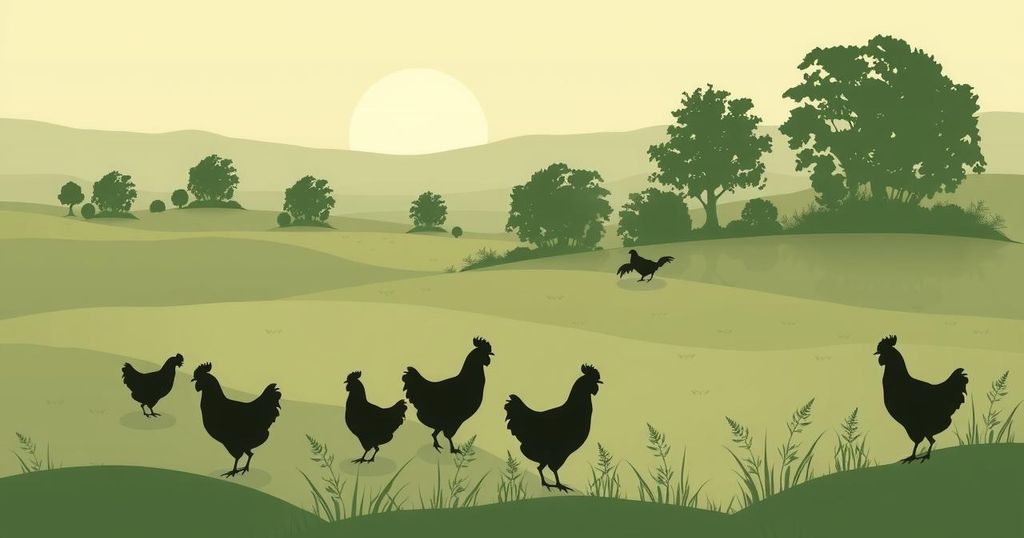Brazil’s Chicken Exports Fall Amid Bird Flu Outbreak Concerns
Brazil has seen a decrease in chicken exports in May due to fears over bird flu, prompting trade bans, particularly from China. While some regions report no cases in commercial flocks, concerns remain. The situation underscores the need for effective communication and swift responses from Brazilian authorities to reassure international partners and stabilize the industry.
Brazil’s chicken exports have declined in May, primarily influenced by concerns surrounding a bird flu outbreak. The situation has resulted in trade bans from several countries, most notably China, which has halted imports of Brazilian poultry. This decline is causing anxiety among exporters who fear cargo rejections and the subsequent impact on their businesses. The Brazilian poultry industry, which is a critical player globally, is now navigating this challenging landscape.
In recent weeks, there have been reports of avian influenza across Brazil’s poultry farms. Although the Ministry of Agriculture is working diligently to contain the spread, the repercussions of the outbreak are palpable. The Brazilian Institute of Geography and Statistics (IBGE) noted that production rates might be affected if the crisis escalates. However, officials in some states, such as Tocantins, have reported no cases in commercial flocks, which could provide some respite to the sector.
Trade analysts emphasize the importance of swift action from Brazil’s authorities to mitigate the impact of bird flu on exports. With countries like China enacting stringent bans, Brazil faces mounting pressure to reassure global markets about the health of its poultry supply. Officials have expressed optimism that a full ban is unlikely, as the health ministry continues testing and monitoring measures. However, the fear of sustained restrictions lingers.
In the backdrop of these developments, Brazil’s major poultry companies, including Marfrig and BRF, are trying to adapt to the situation. Some reports suggest that impending mergers might hinge on regulatory approvals from Brazil’s antitrust authority. Market responses have been mixed, with analysts downgrading the stock of BRF amid uncertainties prompted by the bird flu outbreak. For exporters, the next steps are crucial.
As the industry grapples with these challenges, attention is shifting toward how quickly Brazil can reassure international partners of its biosecurity measures. Continued vigilance against avian influenza is essential, as well as proactive communication with trading partners. The situation remains fluid, and stakeholders are urged to monitor developments closely as Brazil’s poultry industry attempts to recover from this setback.
In summary, Brazil’s chicken exports have faced a notable decline in May due to concerns over bird flu outbreaks, prompting trade bans from countries such as China. With various states ruling out significant impacts on commercial flocks, there is a glimmer of hope for the sector. However, the overall outlook remains complicated by market reactions and regulatory uncertainties surrounding potential mergers in light of the crisis. Next steps are vital for Brazil as it seeks to reestablish confidence with its global trading partners.
Original Source: www.marketscreener.com




Post Comment